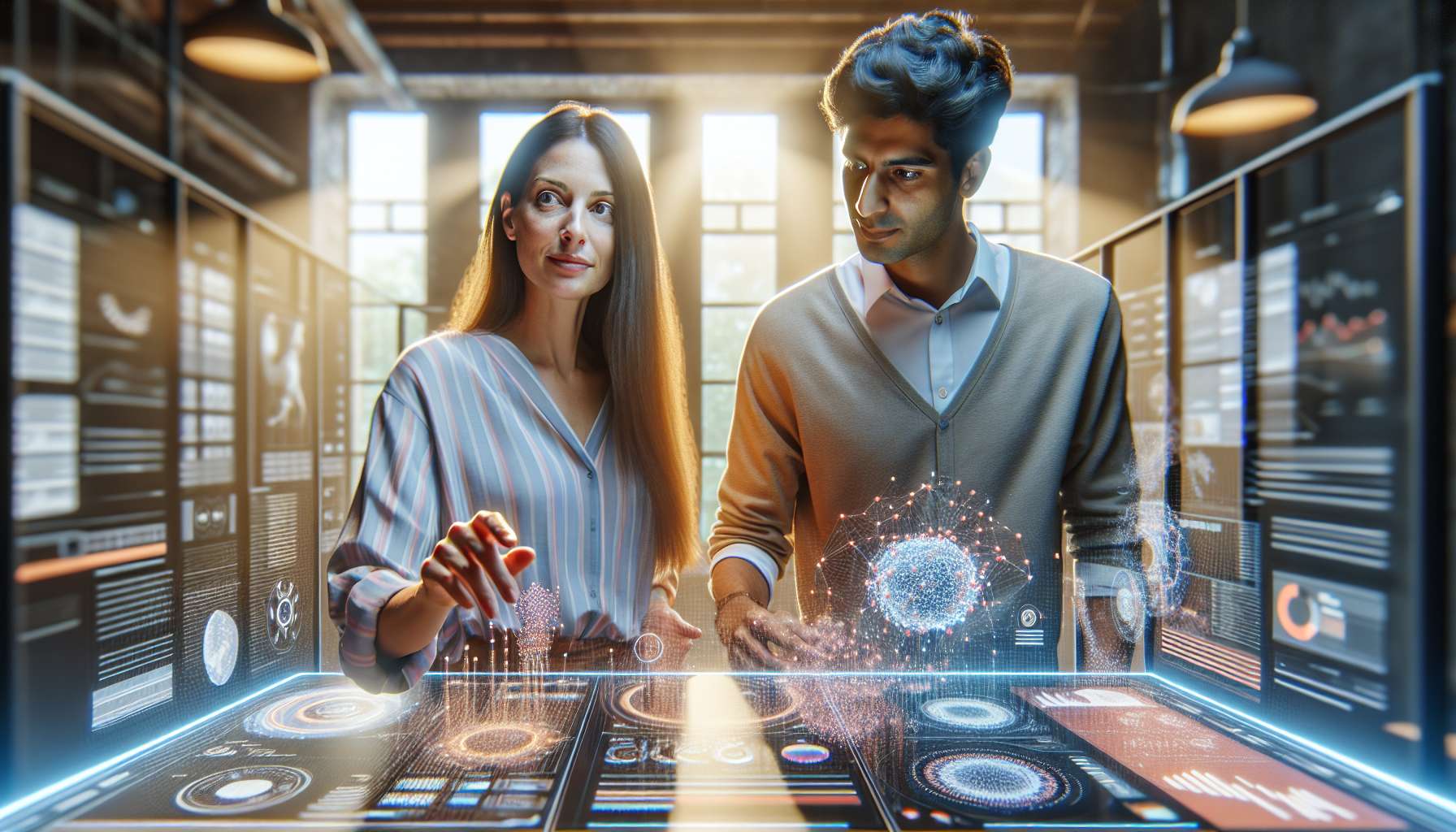Unlocking the Potential of B2B Virtual Product Tours with AI
As technology continues to evolve, businesses are constantly seeking innovative ways to enhance their operations and improve customer experiences. One such advancement that has gained significant traction in recent years is the use of AI-powered virtual tours. These immersive experiences offer a smarter way for B2B companies to present their products, revolutionizing the way they engage with potential clients. In this article, we will explore the effectiveness of AI-powered virtual tours and how they can benefit your business.
What are AI-powered virtual tours?
AI-powered virtual tours combine the capabilities of artificial intelligence and augmented reality to create interactive and immersive experiences. By leveraging AI algorithms, these tours can intelligently guide users through a virtual representation of a product or space, providing a realistic and engaging experience. Whether it’s showcasing a complex piece of machinery or a large-scale industrial facility, virtual tours with AI can bring your products to life in a way that traditional presentations simply cannot.
The benefits of AI-powered virtual tours for B2B businesses
1. Enhanced product understanding: Virtual tours allow potential clients to explore your products in detail, providing a comprehensive understanding of their features and functionalities. By offering an interactive experience, you can effectively communicate the value proposition of your products, leading to increased customer confidence and higher conversion rates.
2. Remote accessibility: With AI-powered virtual tours, geographical barriers are no longer a limitation. Your sales team can showcase your products to clients located anywhere in the world, eliminating the need for expensive travel arrangements. This not only saves time and resources but also enables you to reach a wider audience and expand your market reach.
3. Personalized experiences: AI algorithms can analyze user behavior and preferences, allowing virtual tours to be tailored to individual needs. By presenting relevant information and highlighting key features based on user interactions, you can create personalized experiences that resonate with potential clients. This level of customization can significantly improve engagement and make a lasting impression.
Real-world examples and success stories
Several B2B companies have already embraced AI-powered virtual tours and witnessed remarkable results. For instance, a leading industrial equipment manufacturer utilized virtual tours to showcase their complex machinery to potential clients. By providing an immersive experience that allowed users to interact with the equipment virtually, they saw a significant increase in customer engagement and a 30% boost in sales.
In another example, a software company leveraged AI-powered virtual tours to demonstrate their enterprise solutions to clients. By incorporating AI chatbots within the virtual tour, they were able to address customer queries in real-time, resulting in a 40% reduction in support tickets and a 20% increase in customer satisfaction.
The future of AI-powered virtual tours
The potential of AI-powered virtual tours is vast and continues to expand. As AI algorithms become more sophisticated, virtual tours will become even more personalized and interactive. Additionally, advancements in augmented reality technology will enable users to experience virtual tours through wearable devices, further enhancing the immersive nature of these experiences.
Furthermore, AI-powered virtual tours can be integrated with customer relationship management (CRM) systems, allowing businesses to track user interactions and gather valuable insights. This data can then be used to refine marketing strategies, improve product design, and enhance overall customer experiences.
Conclusion
AI-powered virtual tours offer a smarter way for B2B businesses to present their products, providing enhanced product understanding, remote accessibility, and personalized experiences. With real-world success stories already showcasing the effectiveness of these tours, it’s clear that they have the potential to revolutionize the way businesses engage with their clients. As technology continues to advance, the future of AI-powered virtual tours looks promising, offering even more exciting possibilities for businesses across various industries.





